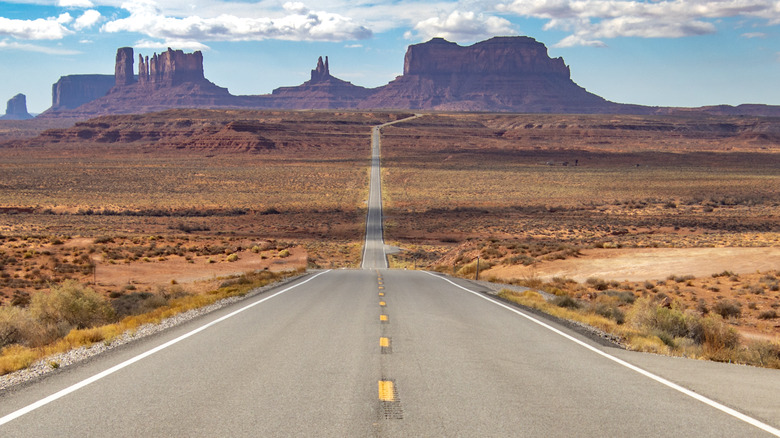Avoid Making This Amateur Mistake When Planning Your Road Trip
Road trips are getaways with cinematic levels of romance: the open highway, the freedom of choice, and the anticipation of discovery. However, every road trip also requires careful planning. One overlooked (yet crucial) detail that road trippers tend to miss is accounting for time changes. This omission can cause a domino effect, potentially upsetting reservations, tour bookings, and even your internal body clock.
Imagine this: You've planned your journey meticulously. You've scheduled a hotel check-in at 6 p.m. in a city across the state border, thinking you've got ample time. But as you cross into a new time zone, you suddenly realize it's an hour later than you thought. Now you're late, hurried, and the romantic charm of your road trip is wearing thin. Not accounting for time changes can also impact fuel stops, rest breaks, and sightseeing. It could mean arriving after dark in unfamiliar territory or missing out on planned activities.
The Earth is divided into 24 time zones based on longitudinal lines. Every 15 longitudinal degrees, there's a one-hour time difference. Theoretically, this sounds straightforward, but geopolitical boundaries and regional decisions complicate this further. Sometimes, even short drives can take you across time zones, especially if you're traveling near the borders of these demarcated regions. Moreover, don't forget about daylight saving time (DST). Certain areas adjust their clocks for part of the year to make better use of natural daylight. Two places in the same time zone might have an hour's difference during DST.
Avoiding road trip time warps
Time is an illusion (theoretically), but it's also very real in our world. Avoiding time issues on your road trip is possible, with the first and most apparent step being — research. Before hitting the road, study your route. Pull out a trusty map, physical or digital, and identify if and when you'll cross time zones. There are several apps available that notify you of upcoming time changes based on your route, such as Google Maps, Apple Maps, and time zone calculators.
While it's great to have a plan, ensure you also build in an extra hour or two of a buffer each day, especially when approaching borders of time zones. If you are crossing into a new time zone, be prepared to adapt your itinerary. Account for the lost or gained hour and adjust your reservations accordingly, and ideally, in advance. If you're running late, inform your accommodations. Most places will understand, especially if they're located near time zone borders and have likely seen this happen with guests before.
Also, sync your devices — all of them. While smartphones usually update time automatically based on your location, other devices like car clocks, watches, or manual cameras might not. Confirm that all your time-keeping devices are synchronized to avoid any confusion. A good way to remember this is to set reminders on your phone. When crossing expected time zones, reminders can prompt you to adjust your non-auto-adjusting devices.
Embracing the journey through time
As mentioned before, daylight saving time can create some confusion. Keep updated on which regions observe DST and how it might affect your journey. Have you heard of the daylight saving time donut? No, it's not a national food. The state of Arizona does not observe DST. However, the Navajo Reservation in the northeast corner of Arizona does. The Hopi Reservation, located inside the Navajo Reservation, does not. Hence, the donut. If you're traveling through Arizona, be prepared.
While a single hour might not sound like a big deal, even small shifts in time can affect your circadian rhythm. It's essentially a mini jet lag. Your body has a natural clock that affects your sleep patterns, hunger cues, and even mood. Disruptions to this can lead to fatigue — the last thing you want when driving long distances. Factor in extra rest stops if necessary, and stay hydrated. If you feel fatigued, avoid driving.
Every road trip comes with its set of unpredictable elements. That's part of the adventure. However, by accounting for factors within your control – like time changes — you can ensure a smoother, more enjoyable journey. In the words of John Steinbeck, "People don't take trips, trips take people." Let your road trip take you on a memorable adventure without the avoidable hiccups of time-zone confusions. Time is the one thing you can't get back, so make sure you spend it well on the road.


